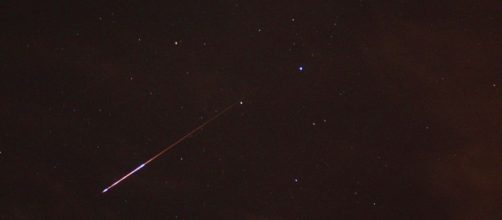Have you ever spotted a meteor in the sky? But have you ever heard a meteor? Far from the city in quiet places where people often enjoy meteor showers, this show is often accompanied by simultaneous hissing sounds. To onlookers, it is a wonderful view, however, to scientists it has been an unsolved mystery for a long time.
The mystery
Scientifically, the sounds that accompany the Meteors are a source of mystery. As is commonly known, light travels approximately 800,000 times faster than sound. This would mean, we shouldn't hear the sounds of meteors while we can see them.
Instead, we should hear them long after that. Just like lightning is seen a while before thunder bursts, meteors should be heard long after we see them since they are farther away than clouds. So, the mystery has continued for a long time until scientists came up with a potential explanation recently.
The answer is radio waves
In April, scientists Michael Kelley of Cornell University and Colin Price of Tel Aviv University proposed an explanation in the publication, Geophysical Research Letters. They claim the sound waves aren't coming directly from the meteor rather they are created through radio waves it develops on its path downwards.
The space rock head falling down is thought to get electrically charged creating an electric current that relays radio waves towards the ground.
This wave travels just at the speed of light. The radio waves then clash against metals or other objects creating a sizzling sound. This is the hissing of the meteor that we hear on seeing a meteor.
According to the scientists, the phenomena does not require a lot of radio wave energy to produce audible sounds. Researchers estimate that a mere 0.1 percent would be enough to hear the meteor’s voice.
Other phenomenon
Meteor showers are not the only heavenly phenomena that produce this kind of sound. The Northern Lights or Aurora Borealis that involve a play of colorful lights across the night sky in the Arctic regions have also been reported to produce mysterious sounds.
Earlier, these were considered to be simply folklores and here-say.
However, studies in recent years have shown that the sounds associated with Aurora’s are real. Several instances of clapping, clicking and hissing sounds have now been officially recorded including the study conducted by Alto University in 2012.
If the proposal of the scientists holds true, the meteor sound theory might also become the basis of explanation for the heavenly voices from The Northern Lights.


